External factors for the Rise and Growth of African nationalism.
Western Education.
Colonial masters awarded scholarships to some African students who went to study abroad. Those students came into contact with white liberals, socialists and communists who were against colonialism. In addition, they witnessed democracy at work in European countries and America and wondered why such democratic governance was denied to them.

On returning to Africa, the elites like Sedar Senghor of Senegal, Sekou Toure of Guinea, Ben Kiwanuka of Uganda, Kwame Nkrumah, Jomo Kenyatta, Agostinho Neto of Angola, Namdi Azikiwe of Nigeria among others demanded for democratic governance and an end to colonialism.
Role of the Russian revolution of 1917
During the course of World War I, immense loses inflicted on Russia by Germany and Austria - Hungary caused the collapse of Tsarist regime in March 1917. Thereafter, the struggle for power in Russia ensued between the liberally minded Mensheviks led by Kerensky and the radical Bolsheviks led by Lenin in October 1917. The Bolshevik won the contest and implanted a communist type of government of Russia.
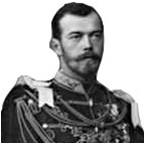 Tsar Nicholas II
Tsar Nicholas II
The successful establishment of communism in Russian in 1917 by the Bolsheviks had great influences on the birth and development of nationalism in Africa. First, the Marxist-Leninist analysis of society used by communists provided many enemies of imperialism with a range of ideas that promoted their self-confidence and made them feel that their struggle against Western imperialism would ultimately succeed.
Second, since the Russian communists were anti-western imperialism, the pressure on imperialism was now strengthened-Africans felt less alone against European imperialism.
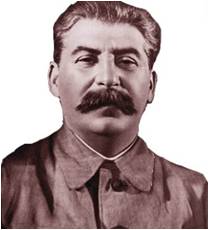 Stalin
Stalin
Third, the communist ideas based on revolutionary armed struggle was the one used to achieve independence in the former Portuguese colonies of Mozambique, Angola and Guinea Bissau and Cape Verde Islands; and in Southern Rhodesia (Zimbabwe). The Soviet Union provided not only ideological base for the African revolutions but also helped to train and equip them in order to make sure that they succeed in their cause.
Fourth, in July 1956, the British, the United States and World Bank refused to finance the Aswan high Dam in Egypt because Nasser was bent more towards the Eastern block. It was again the communist Russia which took out the responsibility of supplying the necessary funds for the construction of this dam.
Fifth, the constant conflicts with Israel forced the Egyptian government to look for allies in the outside world. There was indeed very little room for choice: only the Soviet Union could offer the large-scale military assistance needed by the Egyptians. The Soviet Union and its Satellite states in Eastern Europe supplied weapons, financial aid and technical assistance without asking for much in return. Resistance to imperialism was a common denominator on which the two powers were united.
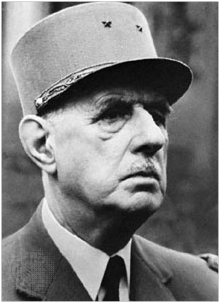
Charles De Gaulle
Sixth, in 1958, Guinea defied De-Gaulle Referendum and voted ‘no' thereby becoming abruptly independent. France withdrew all its administrators, technical personnel and financial aids. It was again the Soviet and Ghanaian financial aids which made Guinea to survive French punishment.
Seventh, most independent African states emulated the Soviet systems almost whole sale. Most of them became one party state and adopted rigid state control of the economy. Typical examples included Tanzania, Uganda, French Guinea Mozambique, etc. Moreover, when the Soviet Union still existed, most African states at the United Nations' Organisation (UNO) tended to associate more closely with Russia due to its anti-colonial attitude.
 Sekou Toure
Sekou Toure
The Soviet Union was very crucial in maintaining unity in the following African states: Congo (1960 - 64), Nigeria (1967-70) and in Angola and Mozambique after gaining independence. This shows that the USSR was more committed in preserving African independence then the Western powers.
Western Education
Colonial masters awarded scholarships to some African students who went to study abroad. Those students came into contact with white liberals, socialists and communists who were against colonialism. In addition, they witnessed democracy at work in European countries and America and wondered why such democratic governance was denied to them. On returning to Africa, the elites like Sedar Senghor of Senegal, Sekou Toure of Guinea, Ben Kiwanuka of Uganda, Kwame Nkrumah, Jomo Kenyatta, Agostinho Neto of Angola, Namdi Azikiwe of Nigeria among others demanded for democratic governance and an end to colonialism.
Role of the Russian revolution of 1917
During the course of World War I, immense loses inflicted on Russia by Germany and Austria - Hungary caused the collapse of Tsarist regime in March 1917. Thereafter, the struggle for power in Russia ensued between the liberally minded Mensheviks led by Kerensky and the radical Bolsheviks led by Lenin in October 1917. The Bolshevik won the contest and implanted a communist type of government of Russia.
The successful establishment of communism in Russian in 1917 by the Bolsheviks had great influences on the birth and development of nationalism in Africa. First, the Marxist-Leninist analysis of society used by communists provided many enemies of imperialism with a range of ideas that promoted their self-confidence and made them feel that their struggle against Western imperialism would ultimately succeed.
Second, since the Russian communists were anti-western imperialism, the pressure on imperialism was now strengthened-Africans felt less alone against European imperialism.
Third, the communist ideas based on revolutionary armed struggle was the one used to achieve independence in the former Portuguese colonies of Mozambique, Angola and Guinea Bissau and Cape Verde Islands; and in Southern Rhodesia (Zimbabwe). The Soviet Union provided not only ideological base for the African revolutions but also helped to train and equip them in order to make sure that they succeed in their cause.
Fourth, in July 1956, the British, the United States and World Bank refused to finance the Aswan high Dam in Egypt because Nasser was bent more towards the Eastern block. It was again the communist Russia which took out the responsibility of supplying the necessary funds for the construction of this dam.
Fifth, the constant conflicts with Israel forced the Egyptian government to look for allies in the outside world. There was indeed very little room for choice: only the Soviet Union could offer the large-scale military assistance needed by the Egyptians. The Soviet Union and its Satellite states in Eastern Europe supplied weapons, financial aid and technical assistance without asking for much in return. Resistance to imperialism was a common denominator on which the two powers were united.
Sixth, in 1958, Guinea defied De-Gaulle Referendum and voted ‘no' thereby becoming abruptly independent. France withdrew all its administrators, technical personnel and financial aids. It was again the Soviet and Ghanaian financial aids which made Guinea to survive French punishment.
Seventh, most independent African states emulated the Soviet systems almost whole sale. Most of them became one party state and adopted rigid state control of the economy. Typical examples included Tanzania, Uganda, French Guinea Mozambique, etc. Moreover, when the Soviet Union still existed, most African states at the United Nations' Organisation (UNO) tended to associate more closely with Russia due to its anti-colonial attitude.
The Soviet Union was very crucial in maintaining unity in the following African states: Congo (1960 - 64), Nigeria (1967-70) and in Angola and Mozambique after gaining independence. This shows that the USSR was more committed in preserving African independence then the Western powers.
Role of the First World War (1914-1918)
The contributions of World War I fought between 1914-1918 between Germany and the Allied - Powers leading to the defeat of Germany. Nationalist sentiments and convictions in Africa were strengthened but not weakened by the effects of World War I.
For instance African soldiers from French as well as British territories encountered German troops in Togo. Cameroons and Tanganyika. They fought side by side with the white man and gained better ideas of his strengths and weaknesses.
And during the wars, they gained knowledge of the outside world. Therefore, after the war they returned home with experiences, which significantly influenced their desire for freedom and liberty.
The unjust division of Togo and Cameroons between Britain and France by the Versailles Peace Treaty of 1919 without involving the local people in decision-making caused deep resentment of European colonialism.
No wonder, the educated West Africans formed the 'National Congress of West Africa' after World War I to protest against some of the problems caused by British rule in West Africa.
In January 1918 after the end of World War I, the USA president Woodrow Wilson issued his peace aims in the famous Fourteen Points' one of the points stressed on the rights of small nations to determine their own futures.
Similarly, the British Prime Minister Lloyd George had stated in 1918 that the idea of self- determination was applicable to both colonies and the occupied territories in Europe though attempts were made to modify this view to exclude its applicability to Africa, yet nationalists aspirations had been influenced by it.
The educated Africans, example, in Egypt and West Africa who read President Wilson's "Fourteen Points" and Lloyd George's ideas of self-determination and equality could feel that a new spirit sympathetic to their cause was abroad in the world.
Further still, the first Pan-African Congress held in Paris in the period 1918 - 1919 was a logical consequence of World War I.
The Role World War II
The 2nd World War that was fought between 1939 to 1945 contributed to the growth of African nationalism in the following ways:
Africans were recruited to serve their colonial masters as drivers, cooks and soldiers during this Great War. These African servicemen witnessed the weaknesses of white men during combat. They saw whites cowardising, retreating, dying and they learnt a lesson that whites were not gods as they had thought. They could die of bullets just like Africans; they also witnessed poverty and prostitution in European slums. On their return to Africa at the end of the 2nd World War, the ex-service men no longer feared the whites and introduced.
The War involved Germany, Italy and Japan against Britain, Russia, France and later USA. The Africans were taken to fight on the side of their colonial masters. The fighting took place in North Africa, Somalia, Ethiopia, South East Asia and the Pacific.
On the side of Africa, there were a number of positive political effects that led to the growth of nationalism. This was possible in the following ways: After the war, the ex‑service men (demobilized soldiers) came back after realising the weaknesses of the white men i.e that they also had conflicts among themselves and could also die during the war.
Africans learnt a great deal from war experience. They learnt how to mobilise and to use weapons.
The war sowed a strong seed of nationalism that led to the formation of political parties in Africa.
The war also weakened the economy of Britain and therefore, no much effort was made to maintain her colonies.
The demobilised solders realised the need for fundamental freedoms and human rights as the European countries were also fighting for the same.
The Pan African Movement
The Pan African Movement also led to the growth of African nationalism. Africans living in the Diaspora, especially in America, started this movement. Pan Africanists like W.E.B DuBois, Marcus Garvey and George Padmore appealed to Africans all over the world to be proud of their race and to unite against whites in Africa. Marcus Garvey's "Go back to Africa" policy and "Africa for Africans" slogan inspired the growth of nationalistic feelings amongst African students who went to study abroad for example Kwame Nkrumah.
The 1941 Atlantic Charter
The 1941 Atlantic Charter contributed tremendously to the growth of African nationalism. As the 2nd World War raged on, the American president Franklin D. Roosevelt and the British Prime Minister Winston Churchill met near the Canadian coast along the Atlantic Ocean, on a battle ship, and signed he 1941 charter. It stated that all people of world have a right to choose a form of government best suited to them. All those under colonial rule were to be restored to self-rule as soon as possible. Unfortunately, Churchill tried to explain that the Charter only applied to the colonised people under Nazi rule in Europe for example in Poland and Belgium. Africans thought was fooling them and became nationalistic.

The 1941 Atlantic Charter inspired Africans to demand for other Sovereign rights and self-government from the aliens. Inspired by the charter, Dr. Xuma of South Africa published "the African claims" in 1945 and Namdi Azikiwe of Nigeria published "the Atlantic charter for West Africa." Both documents demanded for independence as fulfillment of the terms of 1941 Atlantic charter.
The rise of the Labour Party
The rise of the Labour Party to power in Britain in 1945 also inspired the growth of African nationalism. The labour Party comprised of socialists who condemned colonialism and termed it as an evil.
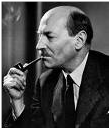 While campaigning,
Clement Atlee (leader of the Labour Party) argued that it
was morally wrong and financially
straining for Britain to continue having colonies in Africa. He condemned Churchill of the Conservative
Party for ignoring the Atlantic Charter of 1941 and for the uncivilized
exploitation of labour in Africa. Once
in power, Atlee speeded up the processes of decolonisation in Africa and
Asia. Hence contributing to African
nationalism.
While campaigning,
Clement Atlee (leader of the Labour Party) argued that it
was morally wrong and financially
straining for Britain to continue having colonies in Africa. He condemned Churchill of the Conservative
Party for ignoring the Atlantic Charter of 1941 and for the uncivilized
exploitation of labour in Africa. Once
in power, Atlee speeded up the processes of decolonisation in Africa and
Asia. Hence contributing to African
nationalism.
The 1944 Brazzaville Conference
The 1944 Brazzaville Conference also led to the growth of nationalistic feelings especially in French colonies. In that year, Charles de Gaulle, leader of France organised a conference of all senior French colonial governors and administrators at Brazzaville.
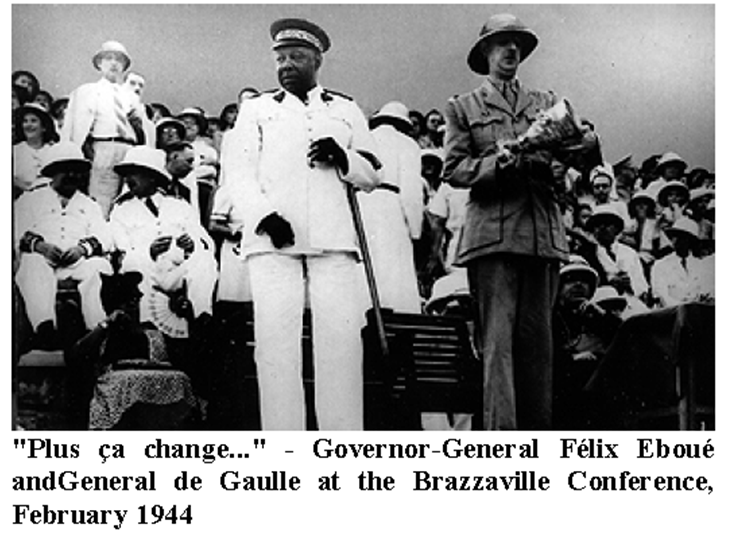
Participants resolved to reform colonialism by abolishing forced labour, unfair arrests and the like. This inspired Africans in French colonies to demand for even greater rights including the right of self-government.
The United Nations Organisation (UNO)
The formation of United Nations Organisation (UNO) in 1945 also led to the growth of African nationalism. This was formed shortly after World War II. The UN charter condemned imperialism in every part of the world. There was formed the decolonization and UN trusteeship council which advocated for independence of many countries.

The Universal declaration of Human rights was declared in December in 1948 and advocated for equality of all people. Ugandans took this opportunity to form political parties. The UN decolonisation committee and its trusteeship council played a key role in preparing African countries for independence. For example Libya and Somalia.
In addition, the 1948 UN declaration of human rights called for political, economic and cultural freedoms to be enjoyed by all humanity. Africans especially in South Africa based on the UN Charter to demand for equal rights with the whites.
Influence from Super Powers
USA and USSR were opposed to colonialism since they did not participate directly in colonial activities. Their influence came after the World War II after the collapse of the economies of Britain, France, Germany and Italy.
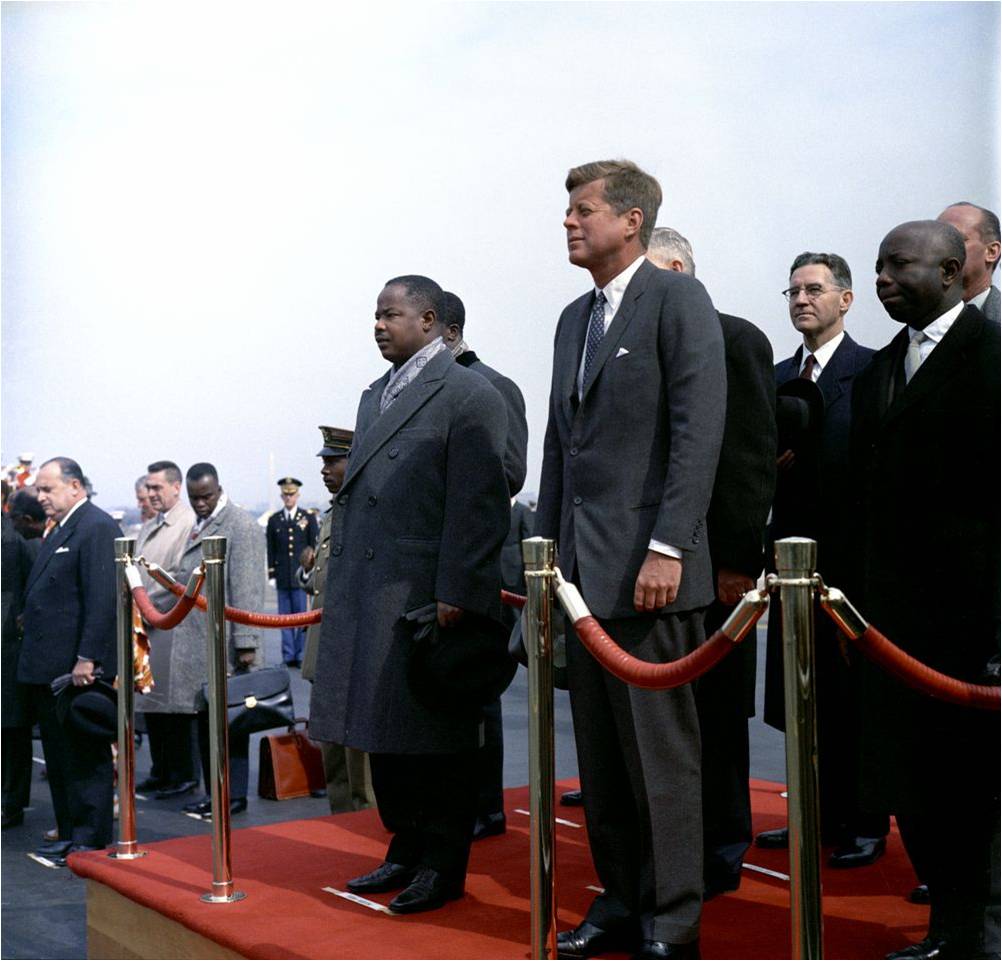
President John F. Kennedy attends arrival
ceremonies for President of Cameroon, Ahmadou Ahidjo. Standing on reviewing
platform (L-R): President Ahidjo; President Kennedy; US Ambassador to Cameroon,
Leland Barrows; Cameroonian Ambassador to the United States, Jacques Kuoh
Moukouri. Ambassador of Nicaragua and Dean of the Diplomatic Corps, Dr.
Guillermo Sevilla-Sacasa, stands at far left of image; Aide-de-Camp to President
Ahidjo, Lieutenant Belladji Ngoura (partially hidden behind President Ahidjo),
stands behind platform at left. Military Air Transport Service (MATS) Terminal,
Washington National Airport, Washington, D.C. Circa 13 March 1962 Photographer:
Knudsen, Robert L. (Robert LeRoy), 1929-1989
For a number of reasons, the two super power countries became too critical of colonial rule worldwide. The US in particular wanted to take over the market for her trade. This made colonial powers to panic and to grant independence to African countries so as to prevent and spread of Russian communism in Africa. U.S.A. threatened to cut off economic aid to Britain and France if they didn't decolonise.
The 1945 Manchester Conference
The 1945 Manchester Conference also led to expanded nationalism in Africa. The 5th Pan African Congress took place in England. Outspoken and highly educated African nationalists like Kwame Nkrumah for Ghana, Jomo Kenyatta and Tom Mboya from Kenya attended the conference, Dr. Hastings Kamuzu Banda for Malawi, Nigeria's Nnamdi Azikiwe, and Senegal's Leopold Senghor among others attended this conference.
They were inspired to organise and prepare their people to struggle for independence. They advocated for independence among African countries. Participants adopted the slogan "Africa for Africans" and on return to Africa, led independence struggles for example J. Nyerere and Kwame Nkrumah led the struggles in Tanganyika and Gold Coast respectively.
The attainment of independence by India
The attainment of independence by India in 1947 greatly inspired nationalistic feelings in Africa. The end of suffering in Asia countries made Africans hopeful that their suffering, too, was soon ending. Since Britain and later France had granted independence to Asian countries such as India, Pakistan, Sri Lanka, Malaya and Indo-China 1949, the Africans became hopeful that their independence was coming next. Africans asked, if the colonial masters had granted independence to Asians, why not to Africans? This made them nationalistic, more so because Asian countries were supportive towards the suffering Africans.
They gave them scholarships and financial help. Mahatma Gandhi of India advised Africans to adopt Gandhism while struggling for independence. This involved non-violent methods like use of propaganda in newspapers and on radio, peaceful demonstrations, boycotts and sit down strikes. Nkrumah, Julius Nyerere, Jomo Kenyatta, Kaunda and Albert Luthuli all applied propaganda and mass mobilization (Ghandism). In indo-China, a French colony Ahmed Ben Bella learnt guerrilla tactics and applied them in Algeria.
The victory of the communist revolution in China in 1949 also influenced nationalistic feelings in Africa. When communist Mao Tsetung came to power, he criticised capitalism and colonialism for their exploitative tendencies in Asia and Africa. He got a number of friends in Africa and gave them financial and military support for example Nasser of Egypt and Sekou Toure of Guinea.
The Afro-Asian solidarity
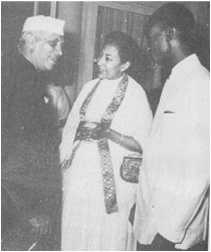 Kirunda kivejinja meeting Indian Prime Minister Nehru
Kirunda kivejinja meeting Indian Prime Minister Nehru
The Afro-Asian solidarity, which led to the formation of the Non-aligned movement at Bandung in 1955, also influenced nationalism in Africa. The 1955 Bandung conference in Indonesian was attended by a number of Africans such as Kwame Nkrumah and Abdel Nasser who met radical nationalists from all over Asia. They condemned colonialism, racial segregation and super power influence in smaller nations. Hey called for Non-alignment and this fuelled the nationalistic struggle in Africa.
The colonial developments in Africa such as roads, railways, bridges, urban centres, schools helped to fuel nationalism in Africa. Though they were intended to facilitate the exploitation of Africa, colonial developments later helped Africans to move easily and communicate their nationalistic ideas to the masses in rural areas. Urban centres helped Africans feel united and to reduce the tribalistic elements which had endangered nationalistic efforts in Africa since the 19th century.
Non-aligned Movement
Non-aligned Movement contributed to the growth of African Nationalism. Non-aligned Movement refers to a group of organised developing countries that were neither aligned to the eastern bloc nor the western bloc during the cold war period. The first conference for the formation of the non-aligned movement took place at Bandung in Indonesia in 1955. It condemned colonialism and encouraged all people in colonies to struggle for self-rule.
The rise of General Charles de Gaulle to power in France in 1958 also stimulated nationalistic efforts especially in Franca phone countries. He rose to power for the 2nd time with a lot of determination to end French colonialism in Africa. He moved to various European, West African and North African countries studying the situation. He met with African nationalists such as Nkrumah and shared ideas about decolonisation. He held meetings with FLN leaders at Evian in Spain to devise means of granting independence to Algeria, etc.
CommonWealth
countries
CommonWealth
countries also criticized the continuity of
colonialism in Africa. This organisation
exerted much pressure to whites in South Africa to grant political, economic
and cultural freedoms to Africans. In
1961, South Africa was forced to quit the association.
Harold Macmillan's speech in 1960
Harold Macmillan's speech in 1960 also raised nationalistic feelings and catalysed the struggle for independence in Africa. Macmillan, the British Prime Minister in 1960, toured the African continent and ended his tour at the Cape of South Africa where he gave a historical speech.
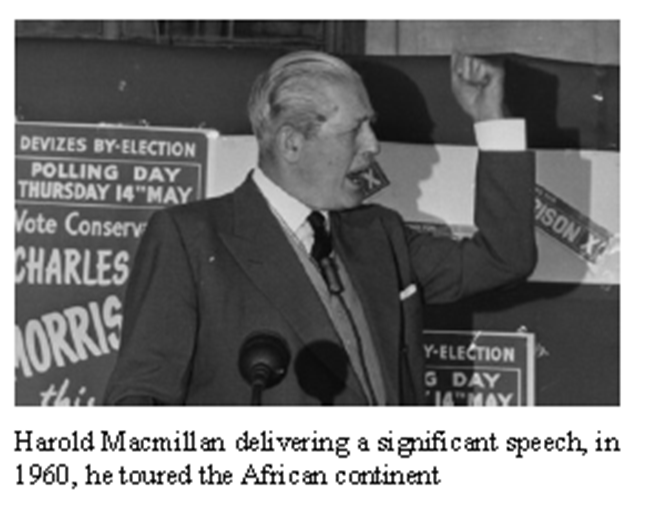
In his words there was "an irreversible wind of change blowing across Africa." He urged that the black man's aspirations could no longer be ignored and called for a speedy programme to end colonialism in Africa. This wind of change speech inspired a number of nationalists in Africa to demand for independence.
The Lisbon coup of 1974
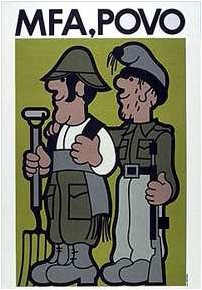 The Lisbon coup
of 1974 helped to dismantle the Portuguese rule in
Africa. General Spinola, an ex-Portuguese commander in Guinea Bissau (1968-73)
had got fed up with colonial wars. Upon returning home, he organised a coup
against president Caetano who had been opposed to the idea of granting
independence to Portuguese colonies. Hence the new regime was determined to
decolonise; in 1974, Guinea-Bissau, and Angola succeeded in acquiring
independence while Mozambique followed suit in 1975. This encouraged Southern
Rhodesians (ZANU) to fight with greater vigour and this enabled them to get
independence in 1980.
The Lisbon coup
of 1974 helped to dismantle the Portuguese rule in
Africa. General Spinola, an ex-Portuguese commander in Guinea Bissau (1968-73)
had got fed up with colonial wars. Upon returning home, he organised a coup
against president Caetano who had been opposed to the idea of granting
independence to Portuguese colonies. Hence the new regime was determined to
decolonise; in 1974, Guinea-Bissau, and Angola succeeded in acquiring
independence while Mozambique followed suit in 1975. This encouraged Southern
Rhodesians (ZANU) to fight with greater vigour and this enabled them to get
independence in 1980.
National Movements and New States in Africa